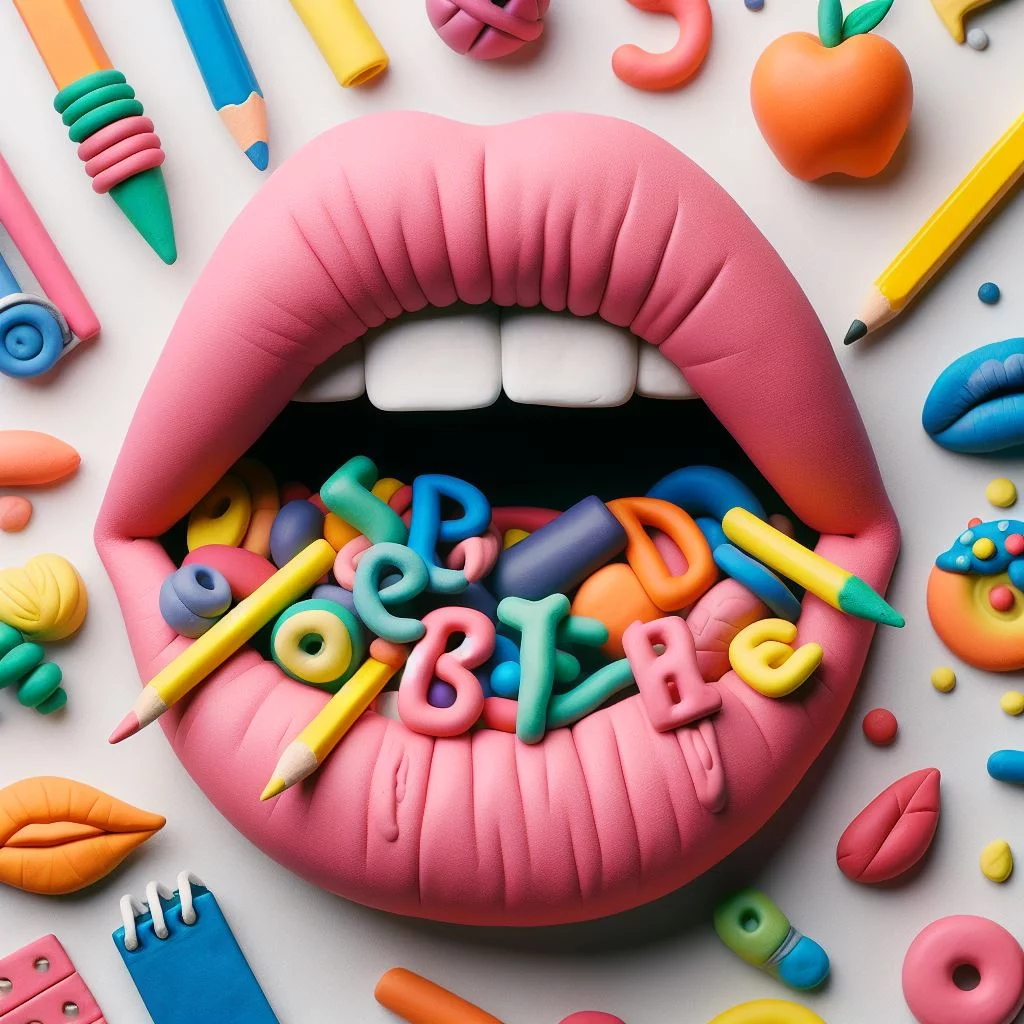Since 2018, Dyslexie Font has collaborated with the HOI Foundation to organize the Dutch Week of Dyslexia every first week of October. Our aim is to alter perceptions of neurodiversity and dyslexia by providing information to dyslexic individuals, parents, children, teachers, and businesses.
DOES DYSLEXIA AFFECT SPEECH
Two parts experience to recognize and official background
Yes, dyslexia indeed affects speech, it manifests on two levels. Firstly, the limited size of your vocabulary becomes evident. Despite being intelligent, you may hit a wall when trying to articulate thoughts, struggling to find the right words or expressing ideas below your cognitive level.
Secondly, dyslexia influences the way you think. Instead of relying solely on words, dyslexic individuals often think in images or moving images at a rapid pace, allowing them to have an overarching view of a situation within their minds. This unique thinking style makes it challenging to convey ideas to non-dyslexics, as what is crystal clear in your mind may appear complex when explained in a linear fashion. Non-dyslexic individuals, who think in a step-by-step linear manner, may struggle to follow the non-linear thought process of a dyslexic person, creating a communication barrier.
Most children with dyslexia encounter the first layer of this challenge, lacking a significant enough vocabulary to express their feelings. As individuals with dyslexia age and develop reflective abilities, they may face the second layer, struggling to convey their thoughts due to the non-linear nature of their thinking. When dyslexics communicate with each other, they often find mutual understanding effortlessly, seamlessly following non-linear narratives, filling in gaps, and expanding on the story.
Dyslexics can discern the distinction between non-linear image thinkers and linear text thinkers. The communication gap between dyslexic and non-dyslexic individuals highlights the importance of recognizing and appreciating diverse thinking styles, fostering a more inclusive and understanding environment for everyone.

OFFICIAL RESEARCH
Traditionally dyslexia associated primarily with challenges in reading and writing. However, recent research indicates a broader impact on communication.
A study involving 50 participants with dyslexia revealed that 17 of them experienced stuttering during childhood. This contrasts sharply with the 1% stuttering rate in the neurotypical population, highlighting a notable connection between dyslexia and stuttering. The severity of dyslexia influences the occurrence of stuttering, with a higher prevalence in individuals facing severe dyslexia. The relationship is now established, categorizing stuttering in dyslexics as a childhood-onset fluency disorder known as developmental stuttering, characterized by repetition, prolongation, and speech blockages.
The correlation between stuttering and dyslexia is attributed to motor planning issues affecting fluent speech. Research indicates a clear association between stuttering and phonological impairments, affecting phonological awareness, phonological memory, and phonological production in individuals with dyslexia.
Phonological Awareness or Language Sound Recognition:
Dyslexics often exhibit low phonological awareness, impacting their ability to hear, interpret, and discriminate between sounds in language. This deficiency hinders the recall and manipulation of sounds at various linguistic levels, making word memorization and retrieval challenging.
Word "Forgetting" or Phonological Memory:
Children and adults with dyslexia frequently struggle to remember common words, experiencing difficulty in recalling the precise sound combination for a given term. This is akin to the sensation of having a word "on the tip of your tongue."
Jumbling Up Words or Phonological Production:
Individuals with dyslexia may mix up words that sound similar, such as confusing "cat" and "cot" due to their phonetic similarity. This phonological production challenge extends to writing, with dyslexics making similar errors in written language.
Learning Procedures Are Difficult:
Recent research from Carnegie Mellon University suggests that dyslexia can disrupt procedural learning, particularly in the acquisition of complex speech-sound categories. The difficulty in processing speech among individuals with dyslexia is considered an outcome of the disorder rather than a causal factor.
Speech and Language Acquisition Is Delayed:
In families with a history of dyslexia, a child displaying signs of speech delay may indicate dyslexia. Difficulties in learning new words, confusion between similar-sounding words, and challenges in recalling and pronouncing names, numbers, symbols, and colors are common indicators.
Understanding the multifaceted impact of dyslexia on communication, encompassing both spoken and written language, is crucial for providing effective support and intervention for individuals facing this learning disorder.